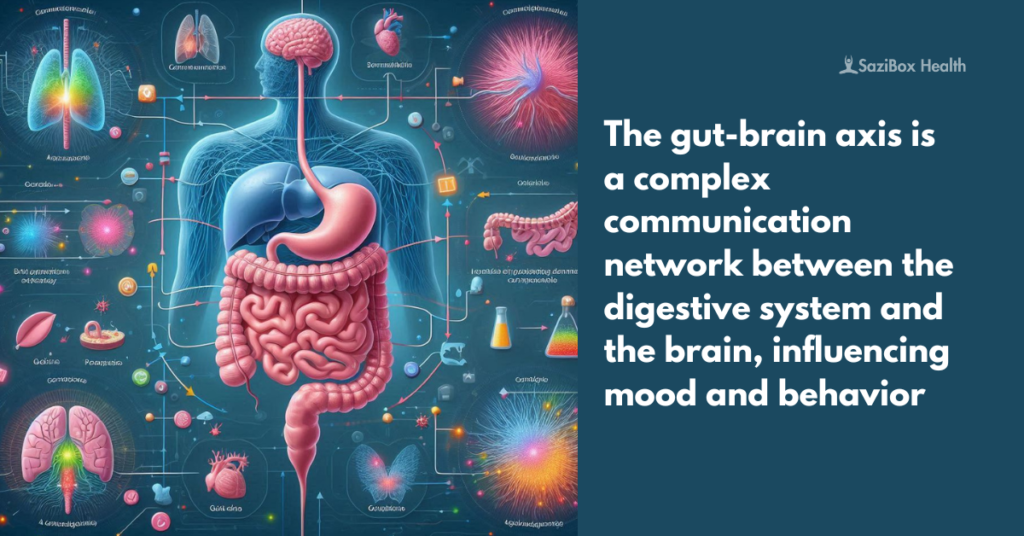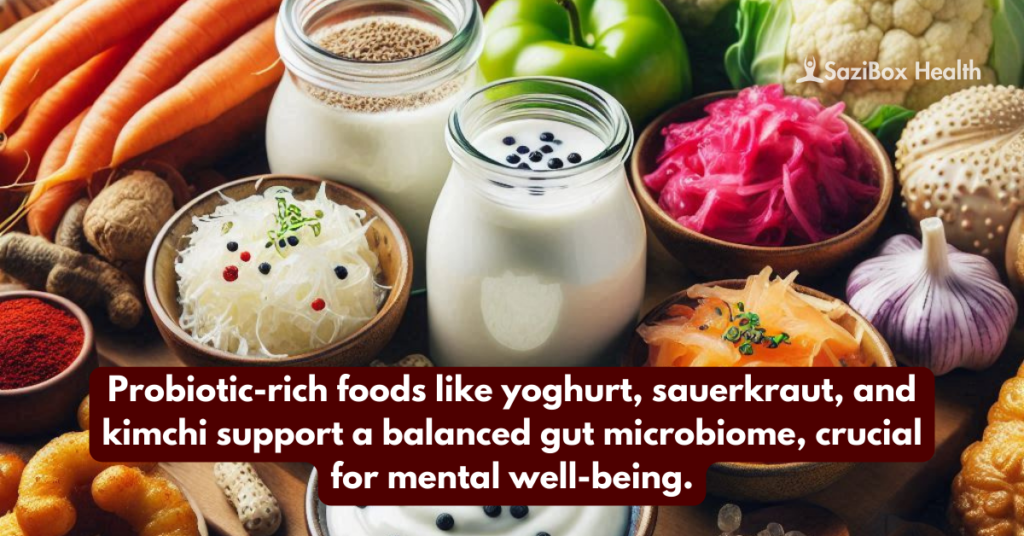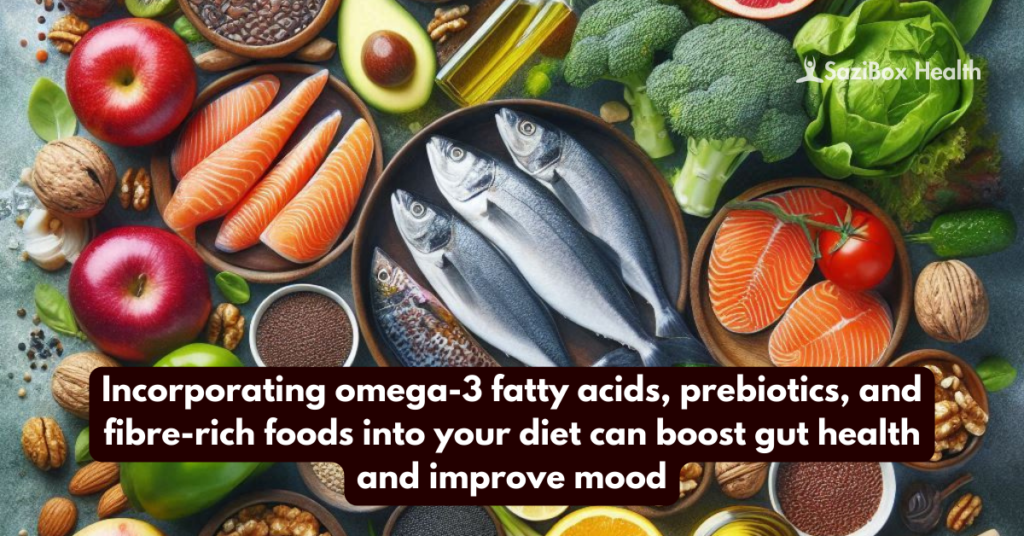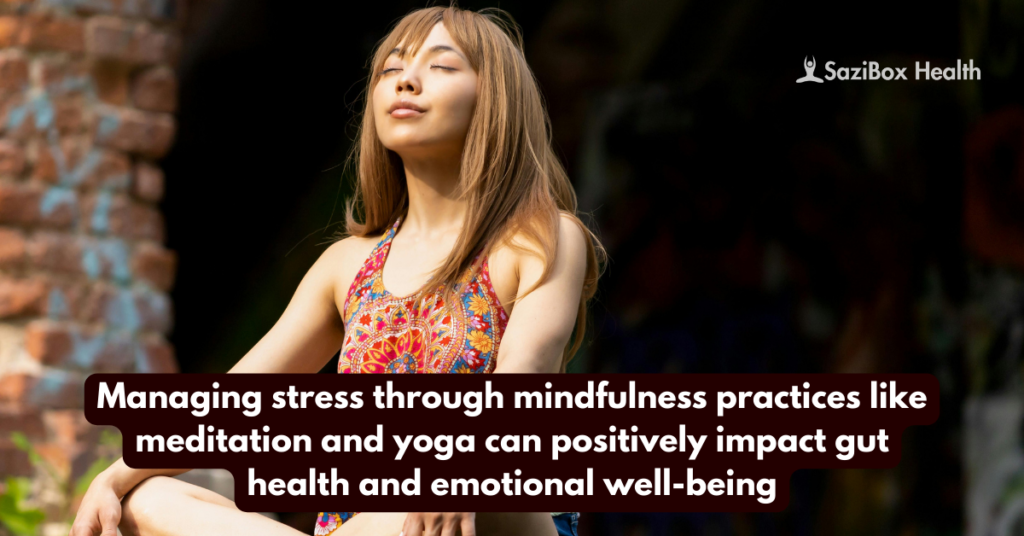Have you ever experienced that gut feeling that something isn’t right? It turns out, this intuition might be more accurate than you think. The gut-brain connection is a fascinating area of research that explores the intricate relationship between our digestive system and our mental health.

Understanding the Gut-Brain Axis
The gut-brain axis refers to the complex communication network between the digestive system and the central nervous system. This bidirectional pathway involves the exchange of hormones, neurotransmitters, and immune signals, influencing our mood, behaviour, and overall well-being.
The Role of the Gut Microbiome
Our gut is home to trillions of microorganisms collectively known as the gut microbiome. This diverse ecosystem plays a crucial role in digestion, immune function, and even brain health. Emerging research suggests that imbalances in the gut microbiome may contribute to mental health conditions such as anxiety and depression.

Nourishing Your Mind Through Your Gut
To optimize gut health and support mental well-being, focus on incorporating these foods into your diet:
- Probiotics: Found in yoghurt, kefir, sauerkraut, and kimchi, probiotics help balance gut bacteria.
- Prebiotics: These indigestible fibres feed beneficial gut bacteria. Include plenty of fruits, vegetables, and whole grains in your diet.
- Omega-3 fatty acids: In fatty fish, flaxseeds, and walnuts, omega-3s have anti-inflammatory properties and support brain health.
- Fibre-rich foods: Fruits, vegetables, whole grains, and legumes promote gut health and overall well-being.

Lifestyle Factors for Gut Health
In addition to diet, lifestyle factors significantly impact gut health and mental well-being:
- Manage stress: Chronic stress can disrupt the gut microbiome. Incorporate relaxation techniques like meditation or yoga into your routine.

- Prioritize sleep: Adequate sleep is essential for both gut and brain health.
- Regular exercise: Physical activity supports overall well-being, including gut health.
- Limit alcohol and processed foods: These can negatively impact gut bacteria and mental health.
Interactive Element: Gut Health Quiz
Take this quick quiz to assess your gut health and identify areas for improvement:
- How often do you consume probiotic-rich foods?
- Daily
- Several times a week
- Occasionally
- Rarely
- Do you experience frequent digestive issues?
- Yes
- Sometimes
- Rarely
- Never
- How would you rate your stress levels?
- High
- Moderate
- Low
- Do you prioritize sleep and exercise?
- Yes
- Sometimes
- Rarely
- Do you consume plenty of fibre-rich foods?
- Yes
- Sometimes
- Rarely
Read more
Fuel Your Adventure: A Delicious Guide to Balanced Eating
How to score your quiz:
- Mostly “Yes” answers to questions 1, 4, and 5, and “Rarely” or “Never” to questions 2 and 3: You’re likely on the right track to good gut health!
- A mix of answers: There’s room for improvement in your gut health routine. Consider incorporating more probiotic-rich foods, managing stress, and prioritizing sleep and exercise.
- Mostly “No” or “Sometimes” answers: You may benefit from making significant changes to your diet and lifestyle to support gut health.
Remember: This quiz is a general assessment. If you have persistent digestive issues or concerns about your mental health, consult with a healthcare professional.
The gut-brain connection highlights the importance of holistic health. By nurturing your gut microbiome through diet and lifestyle choices, you can significantly improve your mental and emotional well-being. Remember, small changes can make a big difference.



